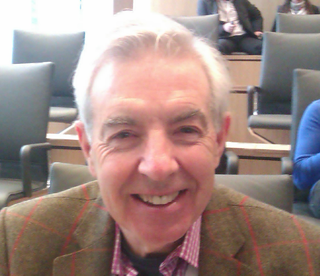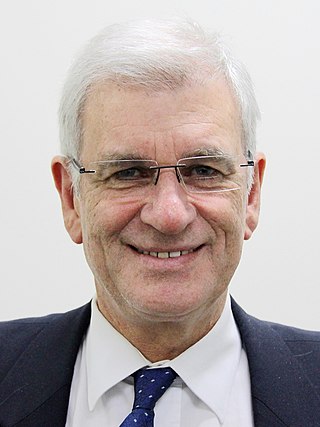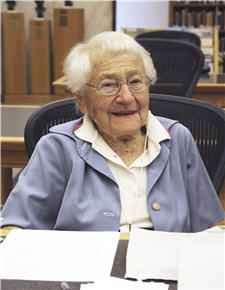Related Research Articles

Forensic psychiatry is a subspeciality of psychiatry and is related to criminology. It encompasses the interface between law and psychiatry. According to the American Academy of Psychiatry and the Law, it is defined as "a subspecialty of psychiatry in which scientific and clinical expertise is applied in legal contexts involving civil, criminal, correctional, regulatory, or legislative matters, and in specialized clinical consultations in areas such as risk assessment or employment." A forensic psychiatrist provides services – such as determination of competency to stand trial – to a court of law to facilitate the adjudicative process and provide treatment, such as medications and psychotherapy, to criminals.

The Institute of Mental Health (IMH), formerly known as Woodbridge Hospital, is a psychiatric hospital in Hougang, Singapore.

Sir Robin MacGregor Murray FRS is a British psychiatrist, Professor of Psychiatric Research at the Institute of Psychiatry, King's College London. He has treated patients with schizophrenia and bipolar illness referred to the National Psychosis Unit of the South London and Maudsley NHS Trust because they fail to respond to treatment, or cannot get appropriate treatment, locally; he sees patients privately if they are unable to obtain an NHS referral.
Ian Brockington is a British psychiatrist.
Emergency psychiatry is the clinical application of psychiatry in emergency settings. Conditions requiring psychiatric interventions may include attempted suicide, substance abuse, depression, psychosis, violence or other rapid changes in behavior.
Liaison psychiatry, also known as consultative psychiatry or consultation-liaison psychiatry, is the branch of psychiatry that specialises in the interface between general medicine/pediatrics and psychiatry, usually taking place in a hospital or medical setting. The role of the consultation-liaison psychiatrist is to see patients with comorbid medical conditions at the request of the treating medical or surgical consultant or team. Consultation-liaison psychiatry has areas of overlap with other disciplines including psychosomatic medicine, health psychology and neuropsychiatry.

A mental health trust provides health and social care services for people with mental health disorders in England.
A mental health professional is a health care practitioner or social and human services provider who offers services for the purpose of improving an individual's mental health or to treat mental disorders. This broad category was developed as a name for community personnel who worked in the new community mental health agencies begun in the 1970s to assist individuals moving from state hospitals, to prevent admissions, and to provide support in homes, jobs, education, and community. These individuals were the forefront brigade to develop the community programs, which today may be referred to by names such as supported housing, psychiatric rehabilitation, supported or transitional employment, sheltered workshops, supported education, daily living skills, affirmative industries, dual diagnosis treatment, individual and family psychoeducation, adult day care, foster care, family services and mental health counseling.
Loren Richard Mosher was an American psychiatrist, clinical professor of psychiatry, expert on schizophrenia and the chief of the Center for Studies of Schizophrenia in the National Institute of Mental Health (1968–1980). Mosher spent his professional career advocating for humane and effective treatment for people diagnosed as having schizophrenia and was instrumental in developing an innovative, residential, home-like, non-hospital, non-drug treatment model for newly identified acutely psychotic persons.

Carola Blitzman Eisenberg was an Argentine-American psychiatrist who became the first woman to hold the position of Dean of Students at the Massachusetts Institute of Technology. From 1978 to 1990, she was the dean of student affairs at Harvard Medical School (HMS). She was a long-time lecturer in the Department of Global Health and Social Medicine at HMS. She was also both a founding member of Physicians for Human Rights and an honorary psychiatrist with the Massachusetts General Hospital in Boston. After retiring, she was involved in human rights work through Physicians for Human Rights, the Institute for Healthcare Improvement, and elsewhere. She turned 100 in September 2017 and died in Lincoln, Massachusetts, in March 2021 at the age of 103.

South London and Maudsley NHS Foundation Trust, also known as SLaM, is an NHS foundation trust based in London, England, which specialises in mental health. It comprises four psychiatric hospitals, the Ladywell Unit based at University Hospital Lewisham, and over 100 community sites and 300 clinical teams. SLaM forms part of the institutions that make up King's Health Partners, an academic health science centre.

Psychiatry is the medical specialty devoted to the diagnosis, prevention, and treatment of deleterious mental conditions. These include various matters related to mood, behaviour, cognition, perceptions, and emotions.

Patricia E. Deegan is an American disability-rights advocate, psychologist and researcher. She has been described as a "national spokesperson for the mental health consumer/survivor movement in the United States." Deegan is known as an advocate of the mental health recovery movement and is an international speaker and trainer in the field of mental health.
The Critical Psychiatry Network (CPN) is a psychiatric organization based in the United Kingdom. It was created by a group of British psychiatrists who met in Bradford, England in January 1999 in response to proposals by the British government to amend the Mental Health Act 1983. They expressed concern about the implications of the proposed changes for human rights and the civil liberties of people with mental health illness. Most people associated with the group are practicing consultant psychiatrists in the United Kingdom's National Health Service (NHS), among them Dr Joanna Moncrieff. A number of non-consultant grade and trainee psychiatrists are also involved in the network.

Philip Manley Boyce is an Australian psychiatrist. He is an Emeritus Professor of Psychiatry at the University of Sydney and an Emeritus Consultant in Psychiatry at Westmead Hospital. He was a professor of psychiatry and head of discipline of psychiatry at the University of Sydney, and head of Perinatal Psychiatry Clinical Research Unit at Westmead Hospital. He has published more than 350 articles, and frequently contributes to psychiatric textbooks. He served as associate editor of Australian and New Zealand Journal of Psychiatry. He has a long clinical and research interest in anxiety disorders, mood disorders, psychosomatic disorders, and perinatal psychiatry. He has also taken leadership roles in the profession as president of the RANZCP and the international Marcé society, in the development of clinical practice guidelines, and in the development of a competency-based training program for the college.
Pamela Jane Taylor, is a British psychiatrist and academic, who specialises in the links between psychosis and violence, and mental and physical health in the criminal justice system. Since 2004, she has been Professor of Forensic Psychiatry in the Department Institute of Psychological Medicine and Clinical Neurosciences of Cardiff University.
Felice Lieh–Mak is a Hong Kong physician, psychiatrist, academician, editor and retired civil servant, and emeritus professor at the University of Hong Kong.

Lucy Dorothy Ozarin was a psychiatrist who served in the United States Navy. She was one of the first women psychiatrists commissioned in the Navy, and she was one of seven female Navy psychiatrists who served during World War II.
Shubulade Smith, also known as Lade Smith is a British academic and consultant psychiatrist at the South London and Maudsley NHS Foundation Trust (SLaM). She is a senior lecturer at King's College, London and Clinical Director at the NCCMH and forensic services at SLaM, and is currently serving as the first black President of the Royal College of Psychiatrists.
Wendy Katherine Burn is a Consultant in Old Age Psychiatry. She was President of the Royal College of Psychiatrists from 2017 to 2020.
References
- ↑ Surtees P, Dean C, Ingham JG, Kreitman N, Miller P McC, Sashidharan S. Psychiatric disorders in women from an Edinburgh community: associations with demographic factors. British Journal of Psychiatry 1983;142, 238–246
- ↑ Kendell RE, Rennie D, Clarke JA, Dean C. The social and obstetric correlates of psychiatric admission in the puerperium. Psychological Medicine 1981;11: 341–350.
- ↑ Dean C, Chetty U, Forrest APM. Effects of immediate breast reconstruction on the psychosocial morbidity following mastectomy. The Lancet 1983; i: 459–462
- ↑ Dean, C. (1983). "Psychosocial morbidity of mastectomy : a follow up study".
{{cite journal}}: Cite journal requires|journal=(help) - ↑ Creed F, Anthony P, Godbert K et al. Treatment of severe psychiatric illness in a day hospital. British Journal of Psychiatry 1989: 154: 341- 347
- ↑ Griffiths Report, NHS Management Inquiry Report, London DHSS, 1983
- ↑ Webster L, Dean C, Kessell WIN. The effect of the 1983 Mental Health Act on the management of psychiatric patients. 1987; British medical Journal 295: 1529- 1532
- ↑ Dean C, Phillips J, Gadd E, Joseph M, England S. A community-based service in the treatment of severe mental illness. British Medical Journal 1983; 307: 473–476
- ↑ Dean C, Phillips J, Gadd E, Joseph M, England S. A community-based service in the treatment of severe mental illness. British Medical Journal 1983; 307: 473–476.
- ↑ National Service Framework for Mental health: Modern standards and Service Models. NHS 1999.
- ↑ Department of Health. The Mental Health Policy Implementation Guide 30 March 2001
- ↑ Dean C. A home treatment service in inner city Birmingham, in The Closure of the Mental Hospitals. Hall P, Brockington IF, (editors) Gaskell 1991
- ↑ Dean C, Freeman H. (eds). Community Mental Health Care – International Perspectives on Making it Happen. Gaskell 1993